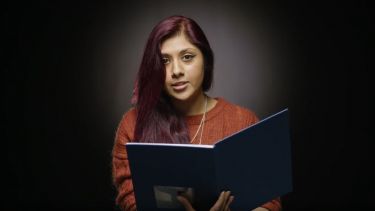Culture, space and difference
This interdisciplinary research group explores three interests: how we live with difference in the modern world; material challenges related to energy, food and waste; and the investigation of cultural spaces, with reference to aesthetics, politics and histories.

This interdisciplinary approach involves a corresponding wide range of research methods and media, including creative writing, textual analysis, ethnography and interview-based social research.
Projects and funding sources are equally diverse, including the Arts and Humanities Research Council (AHRC), Leverhulme, the Economic and Social Research Council (ESRC) and the Science Museum.
Research themes
- Material Challenges: Energy, Food and Waste
Contemporary material challenges, examined in our research, revolve around how humans consume energy and food, the resources we use and the waste we produce.
The challenges of living in an increasingly populous world are addressed through a series of interconnected research projects on consumption, waste, environment and food.
Themes of ongoing projects include:
- Interrogating the nature of foodscapes and alternative food economies through beyond-profit food sites
- H3 (Healthy soil, Healthy food, Healthy people)
- BUDDIE-PACK: social practices of packaging reuse through ethnographic research
- Protein radicals: Power, place and promise in alternative protein futures
- How Do We Live with Difference in the Modern World?
Our research asks how difference and diversity – including ethnicity, race, religion, class and sexuality – are expressed and experienced geographically.
This research examines experiences in the UK and around the world, involving:
- Co-constructing ADHD Pedagogy: Facilitation of and Participation in an Online ADHD Reading Group
- Carnival as Queer Claim: Re-appropriating Rio de Janeiro’s streets through LBGTQ+ celebratory performances
- The in/visibility of homeless people at Termini railway station in Rome
- Cultural Spaces and Politics
Working at the interface of geography, politics and history, researchers in this group are exploring spaces of difference and identity, community, environment, memory, and cultural politics:
- New Geographies of Adventure: exploring the imaginative and political possibilities that can be unlocked by children's geographical curiosity and imagination
- The Long 1970s: Spaces of Dissent and the Politics of Art in Israel/Palestine
- Conservative theorising and ideology in Political Geography
- Geographies of Loneliness: investigating geographies of loneliness through collaborative research involving students and partners including the Science Museum
- Does living in an eco-community make you happier? Critically evaluating of case studies from Greece as potential alternative development pathways
Research making an impact
Members of our school are conducting pivotal research on contemporary geographical issues. Here are some examples of impact in the CSD group:
H3 (Healthy soil, Healthy food, Healthy people)
Led by Professor Peter Jackson, the H3 project addresses the links between food production and consumption and takes an interdisciplinary approach.
It will identify workable paths towards transformed UK food systems, delivered via a series of interventions: on farm, in food manufacturing, distribution and retail, and in terms of the health implications and inequalities associated with food consumption in UK homes and communities.
The project includes a series of stakeholders from government, business and civil society. This includes working with Defra (as a member of their Social Science Expert Group) and with the local food partnership (ShefFood).
Peter also works with the national Sustainable Food Places network and with the Food Farming and Countryside Commission (as an advisor on their public dialogue work: The Conversation).
The H3 project project is funded by a grant from UKRI's Strategic Priorities Fund, as part of the 'Transforming UK food systems' programme.
Geographies of sexuality and diversity
Conducted by Professor Richard Phillips, research on sexuality and diversity has informed Relationships and Sex Education (RSE) policy and practice, for example by providing CPD (professional development) sessions for teachers on providing RSE for diverse classrooms.
This is also explained in a research paper on inclusive sex education.
Inclusive Relationships and Sex Education (RSE)
Protein radicals: Power, place and promise in alternative protein futures
Dr Alex Sexton has conducted expert advisory work for the UK government, World Economic Forum and members of the European Parliament.
She has been an invited speaker at international conferences such as the EAT Stockholm Food Forum and at think tanks including Chatham House and Green Alliance. She is a Council Member for the Food Ethics Council and a co-founder of Cultivate, a non-profit UK-based group that supports informed, multi-voiced dialogue about the emergent field of cellular agriculture from UK perspectives.
With her Cultivate colleagues, she has published peer-reviewed open-access papers and hosts annual conferences on the topic of cellular agriculture. She also regularly appears in the media discussing her work on the future of food, including BBC Radio 4's The Food Programme, BBC Minute, The Telegraph and PBS. In 2022 she also secured a book contract with Harper Collins to write a popular science book that aims to translate her research to broader audiences.
Members and funders
- Group members
Ollie Chesworth (Group lead)
Davi Lemos
Dimitra Pilichou
- Funders and Collaborators




